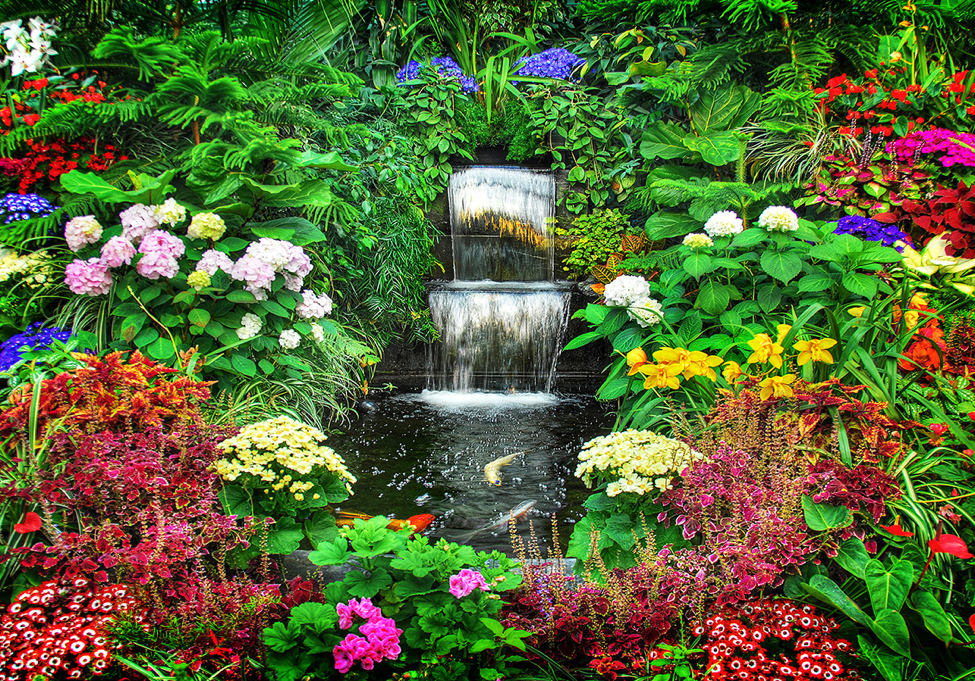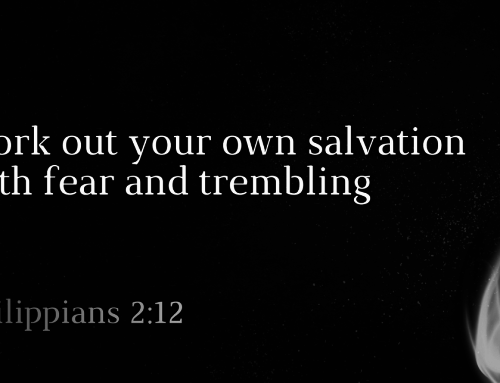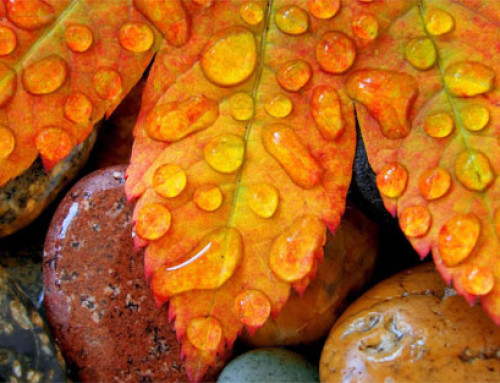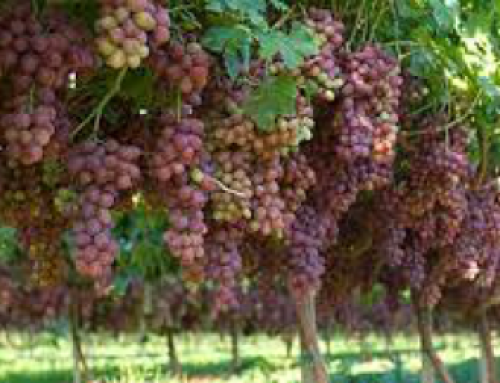” And thou shalt be like a watered garden…” Isaiah 58:11
Background
The Lord brought me to this verse in an unusual way. I was walking through a well-known thrift store when I came across a large framed picture with this Bible verse on it. Its beauty and message struck me, so I began to study its context.
I believe the first lesson I learned was that it is a dangerous thing to take encouraging verses like this out of context, because there is an important condition resting on this wonderful blessing. The people of God — the Israelites, the “house of Jacob” (v.1) — were paying lip-service to God, going through the motions of their faith ritualistically without sincere conviction or the right motive.
“They seek me daily, and delight to know my ways, as a nation that did righteousness, and forsook not the ordinance of their God…they take delight in approaching to God.” (v.2)
This seems like the description of very dedicated Christians who are serving the Lord with their heart, does it not? Verse three tells us that they were even into fasting and “afflicting” their soul in their religious efforts. This affliction caused them to “bow down their heads as a bulrush” (v.5) but the summary of their shortcomings is as follows:
- Theirs was an outward show of religion. They “delighted” in how they looked. (v.2)
- God was not pleased with them because their fasting was self-imposed, self-centred, and full of “strife and debate” (v.4).
- In the pride of their service, they “grieved others” (v.3 margin).
- They made an outward show of holiness bowing down their heads” like a bulrush” and putting on sackcloth (v.5.)
- They failed to reach out beyond themselves (i.e.to the hungry, the poor, the oppressed (v.6,7).
They smote “with the fist of wickedness” (v.4).
“The idea is plain, that even when fasting‘ they were guilty of strife and personal combats. Their passions were unsubdued, and they gave vent to them in disgraceful personal encounters. This manifests a most extraordinary state of society, and is a most melancholy instance to show how much people may keep up the forms of religion, and even be punctual and exact in them, when the most violent and ungovernable passions are raging in their bosoms, and when they seem to be unconscious of any discrepancy between the religious service and the unsubdued passions of the soul” (Albert Barnes’ Notes on the Whole Bible).
So God sets them a condition, because they expected blessing and there was none (v.3). God gave them two “ifs”. Simply stated, they are:
- Get rid of the hypocrisy (v.9) and seeing the faults in others (“putting forth of the finger”)and “speaking vanity”, i.e. an empty, superficial attitude to the Lord’s work.
- Start working from your heart to help others who are needy, reaching out beyond your borders and inner circle(v.10).
God’s Promise of Blessing
In obedience to His two conditions, God promises five blessings:
- Continual guidance
- Satisfaction in drought
- Fat bones
- Watered garden life
- Unfailing irrigation
Each of these blessings deserves specific attention, but our focus for this Bible study is on the blessing of the “watered garden life.”
A Watered Garden is a rare beauty no matter where it is found.
In a dry and thirsty land, there is nothing more beautiful, or more rare than a lush garden of vibrant, healthy, well-irrigated flowers and foliage. It would be “Eden-like” to the passerby and of great refreshment to that soul.
Even in the climate of lush vegetation , a watered garden is a refreshing sight. Imagine how delightful in an arid Middle-Eastern country. A verdant garden is appealing to all ages, all cultures, and all tastes.
Practical Lessons from the Watered Garden
- Its beauty affects others.
If the Lord makes us like this garden, we will be a blessing to others as they look on our lives. The beauty of a garden is external, but it is the internal health of the flowers and plants that causes this outward beauty. The Lord tells us to “let our light so shine before men that they may see your good works.” This outward beauty is not the same as that of the house of Jacob, who made a show of piety and debated and fought about it. Their garden was full of silk flowers. They had a “form of godliness” but denied the power thereof (2 Timothy 3:5). Synthetic flowers are no match for the real thing! Neither are synthetic Christians.
Moses asked, “Let the beauty of the Lord our God be upon us…” (Psalm 90:17). That is our best prayer and ideal. We can try to change ourselves to suit what we think or others think about us, but ultimately we need to have the Lord’s beauty. Then we will be beautiful indeed!
When the Lord promises to make us like a watered garden if we sincerely and obediently follow Him, we could not ask for more. This beauty will provide incredible benefits:
- Refreshment to the souls of others
- Encouragement for the weary passerby
- Inspiration to the feeble
- Attractiveness to the lost soul seeking meaning in life
- Fragrance for the oppressed
- Strength for the Christlike
- Instruction for the wanderer
- Its beauty will include diversity.
The most beautiful gardens are made up of a variety of beautiful flowers. The Lord chooses Christians of different personalities and character traits, but He can make them both equally beautiful. Therefore, it is important to note that the Lord did not say that He would make us like a rose garden or a tulip garden in which all of the flowers would be the same. He said he would make us “a watered garden.”
Each member of the body of Christ is unique. Consider these thoughts about Christ’s garden of believers by the late American preacher DeWitt Talmage (1832-1902):
- “Some of them are violets, inconspicuous, but sweet. You have to search and find them. You do not see them very often, perhaps, but you find where they have been by the brightened face of the invalid, and the sprig of geranium on the stand, and the new window-curtains keeping out the glare of the sunlight. These flowers in Christ’s garden are not like the sunflower, gaudy in the light, but wherever darkness hovers over a soul that needs to be comforted, there they stand, night-blooming cereuses.”
- “In Christ’s garden there are plants that may be better compared to the Mexican cactus–thorns without, loveliness within; men with sharp points of character. They wound almost every one that touches them. They are hard to handle. Men pronounce them nothing but thorns, but Christ loves them notwithstanding all their sharpnesses. Many a man has had a very hard ground to cultivate, and it has only been through severe trial he has raised even the smallest crop of grace. A very harsh minister was talking to a very placid elder, and the elder said, ‘Doctor, I do wish you would control your temper.’ ‘Ah,’ said the minister, “I control more temper in five minutes than you do-in five years.”
- There are others who are always radiant, always impressive–more like the roses of deep hue that we occasionally find; the Martin Luthers, St. Pauls, Chrysostoms, Wyckliffes, Latimers, and Samuel Rutherfords. What in other men is a spark, in them is a conflagration. When they sweat, they sweat great drops of blood. When they pray, their prayer takes fire. When they preach, it is a Pentecost. When they fight, it is a Thermopylae. When they die, it is a martyrdom.”
By the variety described here, we can conclude that we are all different, and yet, God can use even the weakest flower in the garden to reflect His glory. That would suggest that there will be differences among us. We need to appreciate it, rather than expect everyone to be like us. Difference is beautiful when those wearing it are taking their beauty from God, not just putting up a new colour for the sake of “being” different.
- Its beauty will bring intimacy with its Creator.
When we allow the beauty of the Lord to characterize our lives, we will be very aware of the tender care, presence, and communion of our Maker. He wants us to radiate His beauty. It is His will that we be a watered garden. Here is what we can expect:
- An emptying of ugly self and a filling with His beauty
- A realization of total dependence on Him
- His peace
- His love
- His joy
- His longsuffering
- His gentleness
- His goodness
- His faith
- His meekness
- His temperance
May we rejoice in this beautiful verse, and may its promise be the prayer of our hearts as we live out this year :” Lord, please make my life a watered garden for Thy glory!”









